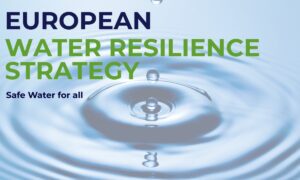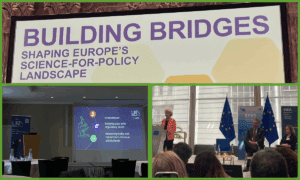On October 24, 2024, the European Parliament’s Panel for the Future of Science and Technology (STOA) held its inaugural meeting for the 10th parliamentary term, electing its leadership for the first half of the term. German MEP Christian Ehler (EPP) was re-elected as the Panel’s Chair, a role he previously held, while Spanish MEP Lina Gálvez (S&D) was appointed First Vice-Chair, and Latvian MEP Ivars Ijabs (Renew) was selected as Second Vice-Chair. The meeting was chaired by Victor Negrescu, Vice-President of the European Parliament, responsible for STOA.
In his remarks, Vice-President Negrescu emphasised the importance of STOA as a platform that provides independent, expert assessments of emerging scientific and technological developments. He outlined the panel’s pivotal role in fostering dialogue between policymakers, the scientific community, and the public. “STOA is essential in helping us understand and adapt to the technological changes shaping our world, and it will be instrumental in policy-making as Europe continues to lead in science and technology,” Negrescu stated.
Christian Ehler, re-elected Chair, underscored the significance of foresight and scientific advice, especially as the European Union faces multiple transitions across various sectors. “STOA’s role is crucial as we navigate these changes,” he said, emphasising the panel’s contributions to safeguarding academic freedom and providing depoliticised spaces for discussions on critical issues.
Reflecting on the previous term, STOA contributed to discussions on various issues, including artificial intelligence (AI), the Green Deal, and the protection of academic freedom. It was involved in shaping aspects of the European Union’s AI regulation, provided analysis related to the EU’s climate objectives, particularly in hydrogen and decarbonisation, and facilitated the launch of the European Parliament Forum for Academic Freedom to address concerns regarding academic rights in Europe.
Looking ahead to the new term, STOA’s leadership is expected to continue its work on key topics such as energy transition, healthcare innovation, and science communication. These areas will be central to its ongoing efforts to support informed policymaking and contribute to the broader goals of the European Union.
EuChemS Contributions to Science-Policy Dialogue
In addition to its ongoing efforts, EuChemS has actively contributed to science-policy dialogues through its collaborations with STOA on key scientific challenges.
Notably, EuChemS co-organised two important events. On April 28, 2016, EuChemS, in collaboration with the European Federation for Medicinal Chemistry (EFMC), co-hosted a STOA Working Breakfast. This event brought together researchers and several Members of the European Parliament to discuss the global challenge of antimicrobial resistance. The participants analysed the issue and debated the pros and cons of possible solutions. You can find more details on the event here.
EuChemS also co-organised a STOA Workshop titled The Energy Storage Challenge: Which Contribution from Chemical Sciences? The workshop focused on the critical role of chemical sciences in addressing the challenges of energy storage, which is essential for Europe’s energy transition.



